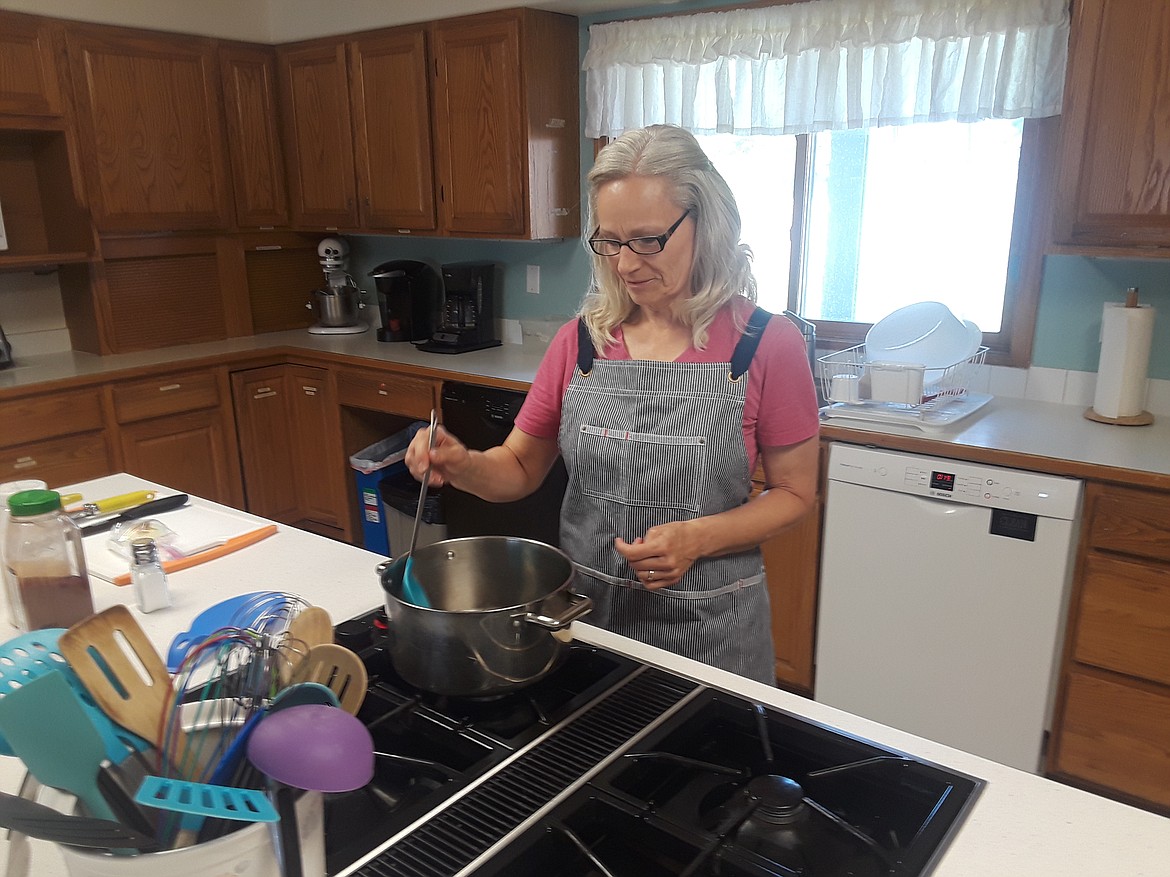Employers feel squeeze with labor shortage
Paul Wiles knows all about enduring the heat to stay in the kitchen.
The owner of The Breakfast Nook in Coeur d’Alene runs a bustling kitchen with a bustling staff. But the 20-year resident said he’s facing a new kind of heat that has his employees bustling even faster of late, as a staffing shortage has resulted in a smaller crew working harder to fill the gap in the workload.
“It’s pretty high-tense over here,” Wiles said. “Working in restaurants is high-tense, anyway. But it’s definitely been more of a challenge lately.”
That challenge stems from a nationwide worker shortage that economists say is plaguing employers as the country emerges from the COVID-19 pandemic.
Despite the federal Bureau of Labor and Statistics reporting in April the country has 8.2 million fewer jobs than it did before the pandemic struck in February 2020, many employers can't fill open positions.
Economists cite a number of factors behind the economic shift in the labor market. Many Americans are returning to work after long layoffs but choosing to switch professions.
Others have used the time off to earn certifications that align them with higher-paying jobs. Some have expressed interest in returning but cannot return, as the daycares that shuttered during the pandemic have yet to re-open.
Still others cite a pandemic-fueled incentive that is keeping the workforce at home: a federal $300-per-week supplemental relief package on top of standard state unemployment benefits. While those benefits are set to expire Labor Day, many states are choosing to opt out of the federal funds. Idaho’s Brad Little is one of 25 governors nationwide to opt out.
“Employers are telling me one of the big reasons they cannot recruit and retain some workers is because those employees are receiving more on unemployment than they would while working,” Little said. “We see ‘Help Wanted’ signs everywhere. Idaho has the strongest economy in the nation, and we are a Top 10 state for best employment, but there is more we can do. It’s time to get back to work.”
Those Help Wanted signs extend far beyond restaurants like The Breakfast Nook. Employers in all walks of the private sector are becoming more and more desperate, from construction to medicine to landscaping to nonprofits. Children’s Village in Coeur d’Alene, which serves as a sanctuary for abused and neglected children, is one such nonprofit that can’t schedule enough interviews.
“Right now, we’re trying to hire about 15 people,” said Vanessa Moos, chief executive officer of Children’s Village. “Most of them are direct care providers we’re looking for. The kiddos live here 24/7, so we need to keep the homes fully staffed to help address their needs.”
To incentivize the right people to work at Children’s Village, Moos has authorized $500 sign-on bonuses as part of her recruitment process. Such a move is not uncommon in an employee-friendly job market, but upping the ante to get labor through the front door becomes particularly complicated during a global pandemic.
“We’ve increased our pay, as most businesses have in the area,” Moos said. “But it’s hard to make financial changes in a pandemic. We want to serve more kids, but we can’t if we can’t get more staff. There’s a risk to this staffing shortage in our area. In our case, it’s kids who won’t have a shelter to call home.”
Local employers in Kootenai County and throughout Idaho are facing an additional disadvantage, one that usually would ring as good news for the state’s economy. A May 27 study by the analytics company AdvisorSmith shows that, over the past two years, Idaho ranks as the top state in the nation in job growth, with 4 percent more jobs than it had in April 2019.
Coeur d’Alene ranked as the third-highest mid-sized city in job growth, with 6.8 percent more jobs today than in April 2019. The City By The Lake was one of four Idaho cities to rate in the Top 10, and it’s the city with the fourth-fastest job growth, regardless of size, in the United States.
That job growth is a statistical rarity in the age of COVID, as the country overall lost 4.1 percent of its jobs over the last two years. While most cities recorded sometimes-crippling job losses, Coeur d’Alene is growing more jobs than it can fill. The result, in many cases, is anywhere from unbudgeted overtime costs to unexpectedly closing for a day.
Taco Works, which runs a trio of food trucks in North Idaho, had to close its Best Avenue food truck early on June 4, as they simply didn’t have the staff to make it through the night shift. Its owner said closing that one night was an outlier stemming from an inability to hire, despite constantly advertising for the open positions.
“We’ve been looking for employees for all of our locations since the beginning of spring,” said Alina Popa of Taco Works. “We’ve been posting and posting and posting, looking for someone to come work.”
Like many businesses in Coeur d’Alene, Taco Works revenues are seasonally driven, with its best months usually coming in the summer. Each spring, the mobile restaurant hires new employees. But this spring, Popa said something unexpected happened.
“I couldn’t find anyone,” she said. “At this point, since the spring, we haven’t had anyone inquire.”
Popa, like Gov. Little and many other local employers, hope ending the $300-per-week unemployment kicker will jumpstart workers back into the labor force.
“The unemployment pays quite well for people that don’t have to do much,” she said. “It pays quite well for people to stay home.”

